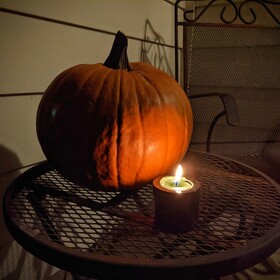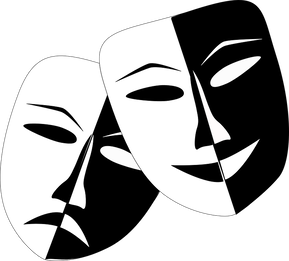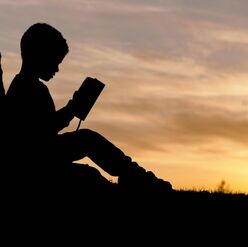|
by Allison Padron For some, the words "literary fiction" brings up images of tweed jackets, learned academics, dinner conversations over wine, and personal libraries filled with only the finest of literature. The "literary" label is usually applied by critics to novels considered so intellectual, so linguistically beautiful, and so meaningful that they apparently need to be separated out from the mass-market, "mindless" genre novels. The debate about the distinctions between genre fiction and literary fiction still rages (as it likely will for many more years), with some classifying literary fiction as an entirely different genre, others as a continuum with genre fiction, and still others saying the "literary" quality is something that a novel of any genre can possess. From everything I’ve read on the subject, though, no one seems to have come up with a clear definition of literary fiction (other than "not genre fiction"), which begs the question: why call anything literary fiction at all?
0 Comments
by Qwayonna Josephs
Looking back now, it’s crazy to think that my introduction to Black-led stories was a book with a Black man on the cover, holding a gun, a book that was distributed to schools from Scholastic and praised as honest portrayals of inner city kids. Yet, every one of those books I read came from the mind of Paul Langan, a white man who claims in an interview that his intention behind the idea was sparked by minority students wanting to see themselves in print. I’m sure that drew lots of students to the books, seeing someone who looked like them on the cover―it definitely drew me in―but, with maturity and clarity, I now understand the harmfulness of these stories and characters. While trying to show our “experiences,” the books highlight negative stereotypes, slap on a problematic cover, and end up in the hands of impressionable elementary, middle, and high school kids that are desperate to see themselves in a story.
 by Ellen Lewis It was that time of year. I snuggled up on my sofa with my fuzzy blanket, seasonal coffee, and warmed up pumpkin muffin. I opened a brand new horror novel, and suddenly...it was all wrong! Sure, I was eating fall foods and reading a spooky story, but I wasn’t in the right mood. It took me a minute to realize that the pumpkin muffin was making me feel warm and cozy, not ready to read about blood and monsters. As you sit down to read your favorite type of book, are you indulging in the correct food or drink—the one that will set the mood for your reading and not pull you out of it? Consider giving these suggestions a try to bring your reading experience to the next level. Embrace different genres by using food and drink to transport you to another world. by Scott MacLean  via Unsplash via Unsplash Can you name one gay superhero? I can’t. How about a wizard? Warrior? Villain? The sad fact of the matter is that I’ve read over two hundred young adult fantasy books and I know of only one that has a main character that’s gay. Now I know what you’ll say, media and literature is much more inclusive these days, which is true. According to a 2019 report done by GLAAD, the percentages of LGBTQ representation are at an all time high, and I’ll be the first to admit that it’s nice to have more options, especially in literature, but why hasn’t this translated to fantasy and other genres? I’m glad I can watch a show like Schitts Creek or read a book like The Gravity of Us by Phil Stamper, examples of quality LGBTQ stories that aren’t entirely centered on the fact that the characters are gay, but unfortunately, kids aren’t dressing up as Kurt Hummel from Glee on Halloween. They’re dressing up as Harry Potter, Daenerys Targaryen, or Harley Quinn, heroes from epic stories full of adventure. by Taylor Blum  via Pixabay via Pixabay Ever since I was a child writing “books” in my third-grade class about a superhero cat that shot lasers out of its eyes, I knew I wanted to write novels. What I also learned growing up is that I enjoy acting and the comradery that forms between yourself and other actors on stage. After finally having the opportunity to act in college, alongside earning a BA in English and creative writing, I learned how these skills go hand in hand. The most important thing I realized from my acting experience was how much dialogue affects my writing. Dialogue has always been so important to me–I can’t read something if I find the dialogue unrealistic or stiff. Honestly, the common mistakes of stiff, expository language makes me cringe and takes me out of the story. Dialogue is also something I realized is hard for writers to master. The good news is that when it comes to plays, dialogue is arguably the most important part. By reading a play, you can see how so much can be said with so little words, and by performing in a play, you become aware of your own voice and how conversations work. We’re often told in fiction classes to pay attention to conversations and to eavesdrop on people to understand how people talk, but this isn’t always manageable, and sometimes feels a bit weird to do. But when acting, it is your sole job to interpret the dialogue, to understand how to raise the subtext out of it, and even change the overall meaning of the words through your tone. This teaches you to understand when less is more in dialogue. |
Archives
July 2024
Categories
All
|
|
Glassworks is a publication of Rowan University's Master of Arts in Writing 260 Victoria Street • Glassboro, New Jersey 08028 [email protected] |
All Content on this Site (c) 2024 Glassworks
|


 RSS Feed
RSS Feed
